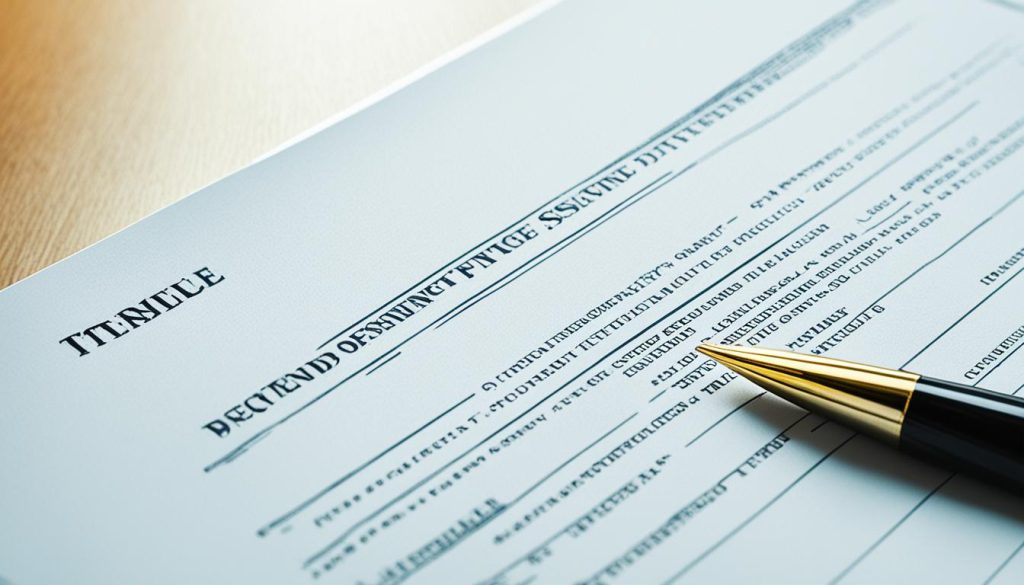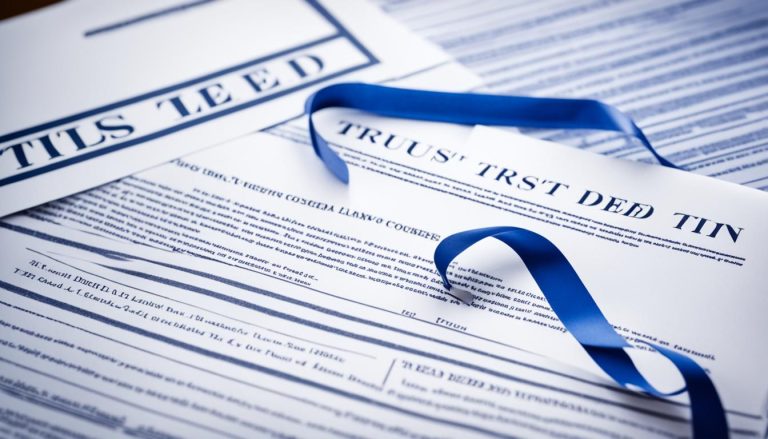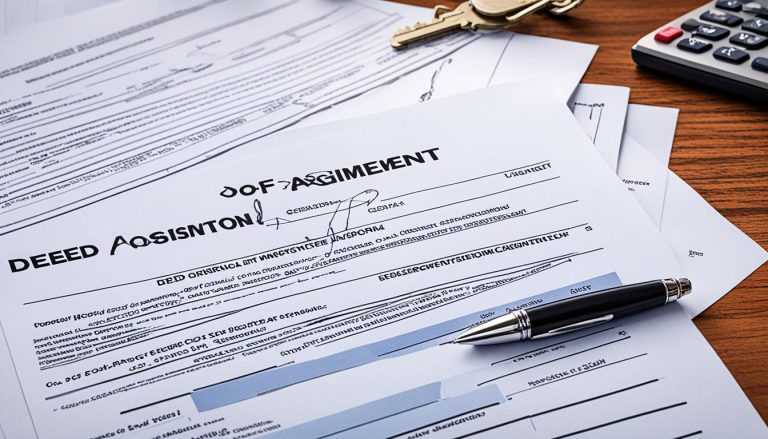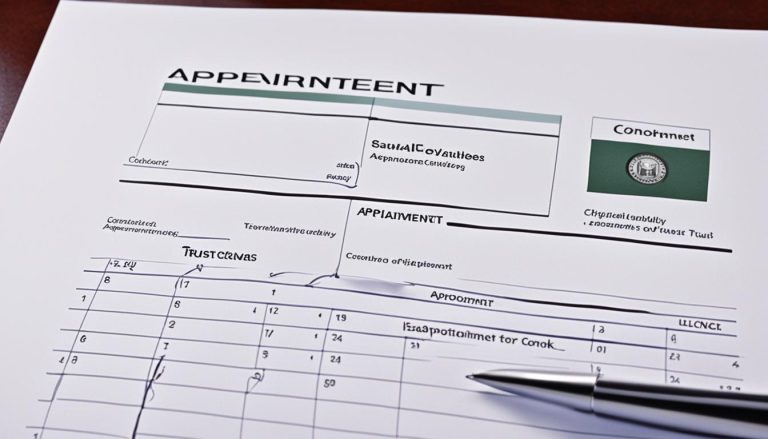Title deeds are legal documents that show the chain of ownership for land and property in the United Kingdom. Changes to these title deeds generally involve adding or removing names, perhaps as part of a sale but also for other property transfer reasons. There are various scenarios where title deeds might need to be changed, such as the sale of a property, marriage, divorce, relationship breakdown, a death, or if the property is being gifted.
The article explores the costs involved in changing title deeds in the UK, providing an in-depth look at the different fees and expenses associated with this process. Understanding these costs is crucial for anyone who needs to update their title deeds, whether it’s for personal or professional reasons.
What is a Title Deed?
Title deeds are the legal documents that establish the ownership and history of a piece of land or property. They play a crucial role in the conveyancing solicitor costs, homebuyer legal fees, and other expenses associated with property transactions in the United Kingdom.
Explanation of Title Deeds
In the modern era, HM Land Registry maintains digital records of title deeds, replacing the need for physical paper documents. These digital title deeds contain important information, such as the chain of ownership, remortgaging expenses, any leasehold title amendments, and details about the freehold ownership transfer. They serve as the authoritative source for determining who owns a particular piece of land or property.
Importance of Keeping Title Deeds Updated
Maintaining accurate and up-to-date title deeds is crucial for ensuring the smooth transfer of property ownership and avoiding potential legal complications. Failure to update title deeds can lead to issues such as disputes over ownership, difficulties in remortgaging expenses, and complications with leasehold title amendments or freehold ownership transfers. Staying vigilant and proactive with title deed maintenance can help homeowners and property owners avoid costly problems down the line.

Reasons for Changing Title Deeds
There are various reasons why title deeds might need to be changed in the UK. The most common reasons include a change of ownership or a change of name.
Change of Ownership
When a property is sold, the title deeds need to be updated to reflect the new owner. This process is known as a transfer of ownership and is a crucial step in any property transaction. The title deed fees UK and property title transfer costs associated with this can vary depending on the specifics of the case.
Change of Name
Individuals may also need to change the title deeds if their name has changed, such as through marriage, divorce, or a deed poll cost britain. This ensures the land registry fees britain accurately reflect the current owner’s name and legal identity.
Regardless of the reason, ensuring the title deeds are up-to-date and accurately reflect the current ownership and details of the property is essential for maintaining a clear and unambiguous record of the property’s history and ownership.

How to Change Title Deeds?
The process of changing title deeds in the UK involves several key steps, from obtaining copies of the existing title deeds to submitting the necessary documents to the Land Registry. By understanding the essential steps, homeowners and property owners can ensure a smooth and efficient title deed change.
Obtaining Copies of Existing Title Deeds
The first step in changing title deeds is to obtain copies of the existing title deeds. This can be done by contacting the Land Registry, which maintains digital records of all title deeds in the UK. Homeowners and property owners can request copies of their title deeds, which will provide the necessary information to proceed with the title deed change.
Reviewing Title Deeds for Restrictions or Charges
Once the existing title deeds have been obtained, it is crucial to review them for any restrictions or charges that may affect the title deed change. This could include things like leasehold covenants, mortgages, or other legal encumbrances. Understanding these potential issues is essential to ensuring a successful title deed change.
Preparing Transfer Deed Documents
The next step is to prepare the necessary transfer deed documents. This may involve drafting a new title deed or completing a transfer of ownership form, depending on the specific circumstances. A conveyancing solicitor or licensed conveyancer can assist with this process, ensuring that all the required information is accurately and thoroughly documented.
Submitting Documents to Land Registry
Finally, the completed transfer deed documents must be submitted to the Land Registry for processing. This may involve paying the necessary fees, such as conveyancing solicitor costs, homebuyer legal fees, or remortgaging expenses, depending on the nature of the title deed change. The Land Registry will then update the property’s title deed records accordingly.
By following these key steps, homeowners and property owners can navigate the process of changing title deeds efficiently and effectively, ensuring that their property’s ownership records are accurately and legally updated.

Costs Involved in Changing Title Deeds
When it comes to changing title deeds in the UK, there are several costs to consider. Understanding these expenses can help you budget appropriately and ensure a smooth transition of property ownership. The key costs associated with modifying title deeds include:
Land Registry Fees
The Land Registry is responsible for maintaining the official record of land and property ownership in England and Wales. When making changes to a title deed, such as adding or removing owners, there are associated fees charged by the Land Registry. These title deed fees uk can vary depending on the type of transaction, but typically range from £40 to £300 or more for more complex cases.
Conveyancing Solicitor Fees
Engaging the services of a conveyancing solicitor or licensed conveyancer is often essential when changing title deeds. These professionals handle the legal paperwork and administrative tasks required, such as preparing the transfer deed documents and submitting them to the Land Registry. Conveyancing solicitor costs can range from a few hundred pounds to over £1,000, depending on the solicitor’s experience, the complexity of the case, and the value of the property involved.
Other Potential Costs
In addition to the Land Registry and conveyancing fees, there may be other costs associated with changing title deeds, such as property title transfer costs, deed poll cost britain (if a name change is involved), and possibly Stamp Duty Land Tax if the transfer involves a sale or gift of the property. The total land registry fees britain can quickly add up, so it’s essential to budget carefully and seek professional advice to ensure you have accounted for all the relevant expenses.
| Cost Type | Typical Range |
|---|---|
| Land Registry Fees | £40 to £300+ |
| Conveyancing Solicitor Fees | £200 to £1,000+ |
| Stamp Duty Land Tax | Dependent on property value |
| Deed Poll Costs | £33 to £40 |
| Other Potential Costs | Variable |

How Much Does It Cost to Change Title Deeds in the UK?
The cost of changing title deeds in the UK can vary depending on several factors. According to Compare My Move, the cost of a Transfer of Equity could cost up to £5,298, plus 1-5% of the property value. This figure includes conveyancing solicitor fees, anti-money laundering checks, a bank transfer fee, Land Registry fees, freeholder consent, Stamp Duty, and remortgaging expenses.
Transfer of Whole Title Fees
For a full transfer of title, the Land Registry fees can range from £40 to £910, depending on the property value. Additional costs may include conveyancing solicitor fees, typically £500 to £1,500 plus VAT, and any applicable Stamp Duty Land Tax. The total cost for transferring the whole title can easily reach £2,000 to £3,000 or more.
Transfer of Part Title Fees
Transferring part of a title, such as adding or removing a co-owner, can incur slightly lower fees. The Land Registry fee for a transfer of part of a title ranges from £40 to £455. Conveyancing solicitor fees may be in the £300 to £800 range plus VAT. The overall cost is likely to be £1,000 to £2,000.
Factors Affecting Costs
The total cost of changing title deeds can be influenced by factors such as the complexity of the case, the value of the property, the specific fees charged by the conveyancing solicitor or conveyancer, and any additional requirements like freeholder consent or remortgaging. It’s essential to obtain detailed quotes from professionals to accurately estimate the total expenses involved.
Using a Conveyancing Solicitor
When changing title deeds in the UK, it can be highly beneficial to enlist the services of a professional conveyancing solicitor or conveyancer. These legal experts specialise in handling property transactions and can guide you through the complexities of updating title deed records with the Land Registry.
Benefits of Using a Solicitor
Engaging a conveyancing solicitor offers several advantages when it comes to changing title deeds. They can ensure the process is carried out correctly, advise on any title deed fees or land registry fees britain applicable, and help navigate the necessary paperwork and legal requirements. Their expertise can help avoid costly property title transfer costs or deed poll cost britain mistakes that could arise from attempting to handle the changes yourself.
Finding a Reputable Conveyancing Solicitor
When selecting a conveyancing solicitor, it’s important to choose one with a proven track record and expertise in handling title deed changes. Look for solicitors who are members of professional bodies like the Law Society or the Council for Licensed Conveyancers. You can also ask friends, family, or your mortgage lender for recommendations of solicitors they have used and trust. Comparing conveyancing solicitor costs and reviews can help you find the right professional to guide you through the how much does it cost to change title deeds uk process.
Avoiding Costly Mistakes
When changing title deeds, it is crucial to avoid costly mistakes to ensure the process runs smoothly. Accurate documentation and attention to detail are paramount, as errors can lead to significant complications and expenses down the line.
Importance of Accurate Documentation
Ensuring that all title deed documents are filled out correctly and contain the proper information is essential. This includes verifying the names, addresses, and other personal details of all parties involved, as well as ensuring that the property description and any associated charges or restrictions are accurately reflected. Conveyancing solicitor costs can quickly escalate if errors are made in the documentation, leading to delays and additional administrative fees.
Consequences of Errors
Mistakes in the title deed transfer process can have far-reaching consequences. From remortgaging expenses to issues with leasehold title amendment or freehold ownership transfer, errors can create significant headaches and financial burdens. In some cases, errors may even lead to disputes over ownership or other legal challenges that require costly litigation to resolve.
Tax Implications
When changing title deeds in the UK, it’s important to consider the potential tax implications. Two key areas to be aware of are capital gains tax and stamp duty land tax.
Capital Gains Tax
If the property has increased in value since the original purchase, there may be capital gains tax to pay when transferring ownership. This is calculated based on the difference between the original purchase price and the sale price. The amount of capital gains tax owed will depend on factors such as the property title transfer costs, the land registry fees britain, and the owner’s personal tax circumstances.
Stamp Duty Land Tax
Stamp duty land tax is a tax paid on the purchase of a property or land in the UK. When changing title deeds, this tax may be applicable, particularly if the property is being transferred to a new owner. The amount of stamp duty due will depend on the title deed fees uk, the deed poll cost britain, and the value of the property itself. It’s essential to factor in these how much does it cost to change title deeds uk when budgeting for the title deed transfer process.
Consulting a qualified tax professional or conveyancing solicitor can help ensure you understand and fulfil all the relevant tax obligations when changing title deeds in the UK.
Special Circumstances
When it comes to changing title deeds, there are some special circumstances that can arise, each with their own unique considerations and requirements. These include situations such as transferring ownership after a death, navigating divorce or separation, and adding or removing joint owners.
Transferring Ownership After Death
If a property owner passes away, the title deeds will need to be updated to reflect the new owner(s). This process typically involves obtaining a Grant of Probate or Letters of Administration, which grants the legal authority to handle the deceased’s estate. The conveyancing solicitor costs and homebuyer legal fees associated with this type of title deed change can vary depending on the complexity of the case.
Divorce or Separation
In the event of a divorce or separation, the title deeds may need to be amended to reflect the new ownership arrangements. This could involve removing one party’s name from the deeds or transferring the property to a single owner. The remortgaging expenses and associated legal fees can add to the overall costs of this process.
Adding or Removing Joint Owners
Title deeds can also be changed to add or remove joint owners, such as when a couple gets married or a property is being gifted to a family member. This may involve leasehold title amendment or freehold ownership transfer, with associated conveyancing solicitor costs and Land Registry fees.
Conclusion
In conclusion, changing title deeds in the UK can involve a range of costs, from Land Registry fees to conveyancing solicitor fees and other potential expenses. The overall cost can vary depending on factors such as the complexity of the case, the value of the property, and the specific fees charged by the professionals involved.
The process of changing title deeds typically includes obtaining copies of existing title deeds, reviewing them for any restrictions or charges, preparing the necessary transfer deed documents, and submitting them to the Land Registry. The Land Registry fees, which can range from £40 to £910, and the conveyancing solicitor fees, which can range from £500 to £1,500 or more, are the two main costs associated with this process.
Consulting a reputable conveyancing solicitor can be beneficial in ensuring the process is handled correctly and avoiding any costly mistakes. Additionally, it’s important to be aware of the tax implications, such as capital gains tax and stamp duty land tax, that may arise when changing title deeds. Special circumstances, such as transferring ownership after a death, divorce, or adding/removing joint owners, may also require additional considerations.
Overall, the cost of changing title deeds in the UK can vary significantly, but with the right guidance and attention to detail, the process can be navigated successfully. Whether you’re buying, selling, or making changes to your property, understanding the costs and the steps involved in updating title deeds is crucial for a smooth and efficient transition.
FAQ
What are the costs involved in changing title deeds?
The costs associated with changing title deeds in the UK include Land Registry fees, conveyancing solicitor fees, and other potential expenses such as anti-money laundering checks, bank transfer fees, freeholder consent, Stamp Duty, and remortgaging costs.
What are the benefits of using a conveyancing solicitor when changing title deeds?
Using a conveyancing solicitor or conveyancer can be beneficial when changing title deeds, as they can ensure the process runs smoothly and help avoid costly mistakes.
What should be considered to avoid costly mistakes when changing title deeds?
When changing title deeds, it is important to ensure accurate documentation, be aware of the consequences of errors, and consider any tax implications, such as Capital Gains Tax and Stamp Duty Land Tax.
Are there any special circumstances to be aware of when changing title deeds?
Yes, special circumstances can include transferring ownership after a death, dealing with divorce or separation, and adding or removing joint owners.






